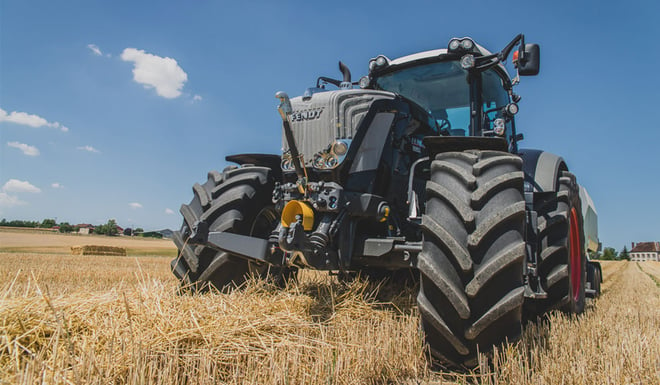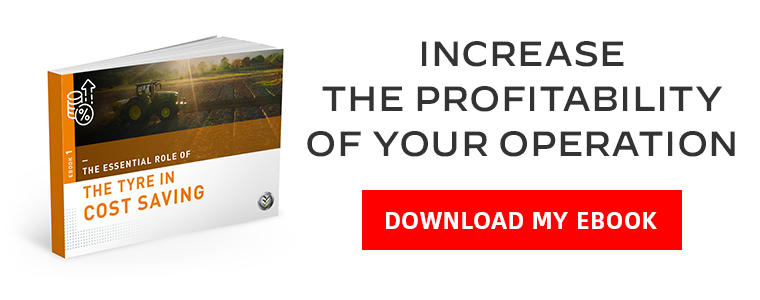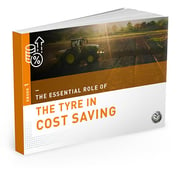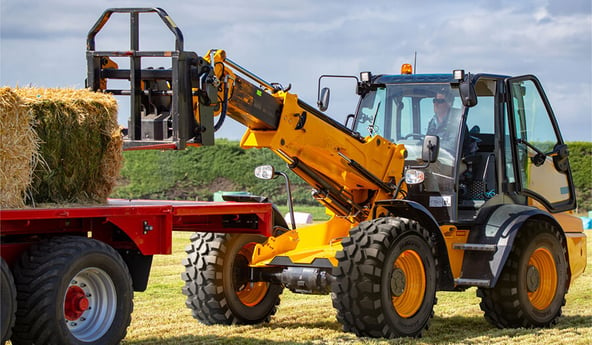Adapting your tyres to your farming activities will enable you to make savings; in one year you could save several thousand euro.
Ok, but saving on what exacly?
Savings in working time, fuel consumption, maintenance and repairs, in operating losses and in investment costs.
By controlling the technical elements of your tyres, you can make real savings.
1. Your agricultural tyres; saving you money, time and fuel
These economies are due to efficient motricity. These are the elements required to achieve this motricity:
- The right size of tyre for your tractor, its working activities and the type of soil.
- The right pressure for maximum contact with the soil and to avoid damage to tyres. To maximise the contact with the soil, it’s a good idea to use wide tyres.
- Avoid extra spinning: here too it’s essential to adapt tyre pressure to the load and to the speed. Tests carried out by Firestone have proven that adapting tyre pressure can divide the slip ratio by two (from 23% to 12%) and reducing fuel consumption by 10%. You should aim for a slip ratio at around 12 to 15%.
- The choice of technology: with the IF and VF technical standards, savings are multiplied. An increased load capacity of up to 40% is a time saver. Pressure adapted to the load and to the driving speed: enabling you to work with the same pressure in the fields and on road saves time.
2. Save money on maintenance and repairs
These cost savings are the result of managing your tyres to maximise their lifespan and protect the other mechanical parts:
- Inspect your tyres regularly to anticipate repairs and increase their lifespan. See the sheet on 10 inspection points in 10 minutes.
- Identify the signs of abnormal wear to avoid vibrations, over wearing and breakage to other mechanical parts. Sometimes it’s incorrect mechanical adjustment that reduces the lifespan of your tyres! See the fact sheet for identifying abnormal wear.
- Follow the rules for storing and handling tyres (avoiding oil stains, winter storage, after winter, etc.). See the summary of guidelines.
3. Savings by avoiding profit loss and investment costs
These are savings in soil quality, tyre technology and financial services:
- Poorly adjusted tyre pressure can lead to soil compaction. This will be detrimental to your yield and therefore to your per hectare profit margin: the INRA (French national body for agronomic research) has shown that soil compaction can reduce your profit margin by up to 14% on a wheat crop. Check the fact sheet to manage your tyre pressure.
- The right technology for the best results... sometimes spending more on your tyre can cost less in the long term than buying a cheap tyre.
- Most manufacturers give you the possibility of buying your tyres in interest-free instalments over a few years for. Check with your tyre service provider.
If you would like to learn more,
There are lots of details on managing the technical elements to help you save money, available by downloading the free eBook below:
Most people who read this article have also read some of the following articles which are listed by order of popularity:
This information is intended only to make you aware of the technical and functional aspects of agricultural tires and their use. It does not allow you to make a judgment or a definitive conclusion on a given problem. Only your agricultural tire expert is able to make a technical assessment and take a final decision, case by case.
Leave a
commentary
Your email address will not be published.
Required fields are indicated with *








